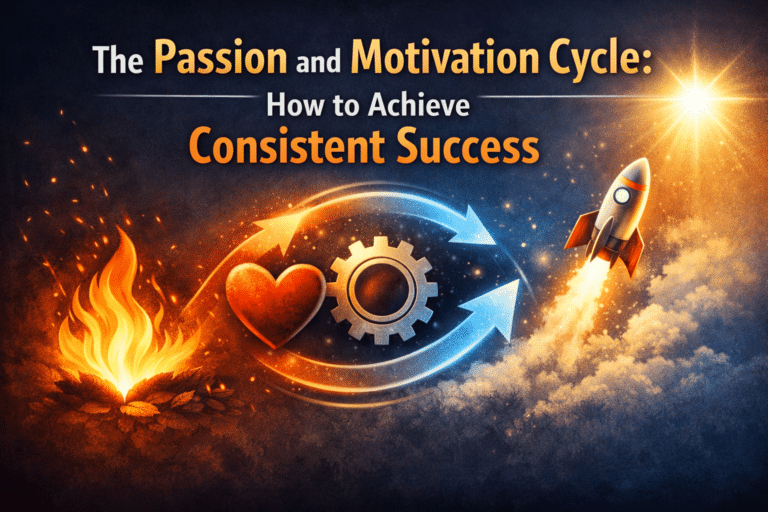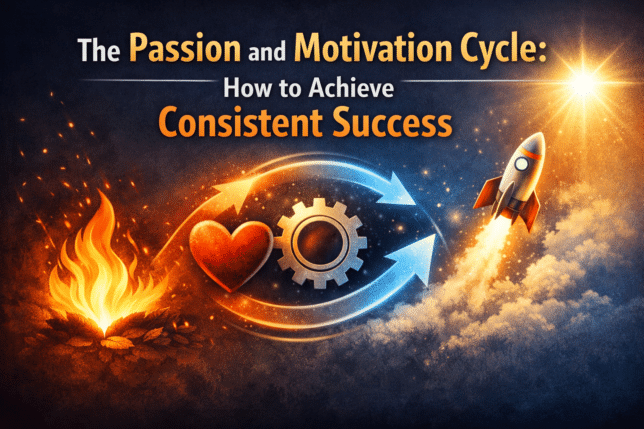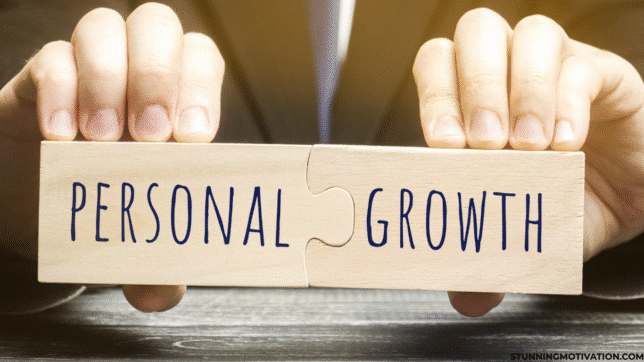I know you have hundreds of things you wish you could do with your life, but you just can’t find the time, right? You want to read a book, learn to cook, watch a drama series, exercise, do yoga, walk your dog, build a business, and still be able to spend quality time with your family. But you just don’t have enough time for all these.
The truth is that we all have 24 hours a day. No matter who you are, whether you are Bill Gates or the president of a country, you have 24 hours a day.
So you have to understand that it is not that you don’t have enough time, instead, it is because you don’t really know how to manage yourself and your time. After all, every one of us was given the same amount of time each day.
Some people made good use of their time to do things that they love, build businesses that they’re passionate about, and live the life they dream.
On the other hand, there are also people who allowed the constant demands of their lives to pressure them. They allow life to happen to them rather than take control of time and live the life they wanted.
Your mission is to transform your life from the second group to the first. You want to reclaim your time and your life. You want to make good use of your time and live to the fullest.
More importantly, you want to find more time and create a life that you love living. So here are 15 little hacks how you can find more time in your day to build the lifestyle that you desire.
“If you love life, don’t waste time, for time is what life is made up of.”
1. Cut back time spent on unnecessary activities
If you want to get more time in life, the fastest and easiest way to do so is to cut back your time spent on unnecessary activities.
Learn to cross something off. What I mean here is NOT about crossing it off because it’s done, but cross it off as in don’t do it.
There are so many things you do in your day, and there will be surely one thing that you don’t really need to get it done.
First, go through your work tasks and get rid of the tasks that don’t contribute to the results you want. Next, go through your leisure time and cut back on the time that isn’t really enjoyable. Here are some recommendations:
Television – I don’t really watch TV anymore. I do watch movies, but I only watch them in the cinema. If you can’t get rid of it completely, choose to cut it down to only watch the shows that you truly enjoy.
Social media – Do you really need to check updates and see what others are talking about once every hour? No, you don’t. Unless you need to work on social media, spend less time on it and invest your time elsewhere.
Games – Mobile games have made things easier for us, but the downside is that we tend to spend more time on them. You can enjoy playing games, but make sure you don’t overspend your time on them.
Chores – There are many ways you can save time on your chores, from keeping things organized to cooking meals in advance, you just need to work it out.
Cutting back your time on unnecessary activities is one of the most effective methods to create more time in your day.
When you waste less time on unproductive tasks, you can then channel the time for useful and productive tasks.
2. Wake up early and use your mornings
Another good way to find more time is to wake up early and use your mornings wisely. Most of us have a fixed morning routine because we don’t really get distracted that often in the morning.
Hence, if you can wake up an hour earlier, think about how much you can accomplish in a year. You’d had 15 days extra in a year if you wake up an hour early each morning.
Mornings are perfect because you haven’t been filled with unscheduled and distractions. Plus, your mind will be fresher because you just wake up from a long sleep.
I usually spend my morning on more important tasks such as writing. I love to write while enjoying a cup of coffee.
And in the afternoon, especially in the late afternoon like 3 or 4 PM, I feel more difficult to focus. Thus, I will then choose to do other work that requires less of my mind power, like creating images for Pinterest.
So, can you wake up an hour earlier? If you can, what would you do with that additional hour?
3. Make the best use of your gap time
The gap time is the most underused time we all have. It is the time between your tasks but is usually not long enough to get more done.
For example, the time you commute to work, when you are waiting in line, commercial breaks in TV programs, small and quick breaks in your office, when waiting for meetings or someone, etc, are the gaps that you don’t want to waste.
Here are a couple of ways how you can spend your gap time more productively:
- Read a book – Bring a book with you at all time and whenever you are free, read it.
- Listen to audio – Podcast is famous right now. You can learn a new language during your commute time.
- Planning – Use your gap time to think and plan your day. Schedule what you need to do and then do it when the time comes.
- Rehearsal – Use a couple of minutes for visualization. You can visualize the important parts of your day, the goals you want to achieve, or simply rehearse for peak performance.
- Engage – Yes, use your gap time to live in the moment. You can practice mindfulness meditation like focusing on your breathing and pay attention to the moment. It helps lower your stress and brings back your energy.
There are many things you can do with your gap time. The key is to make good use of it rather than let it flow through unconsciously and waste it.
4. Create a list and plan your day
You can’t find more time if you don’t plan for it. I found that I become much more productive and able to get more things done when I write down the things that I needed to do for the day.
This is why I use a diary to plan my day. First, making a to-do list free your brain from overwhelming and puts all the things you need to get done in front of you, so that you can tackle them one by one.
Next, when you know what you need to do, you become proactive rather than reactive. When you don’t know what you need to do, you’ll do whatever that comes to you.
And besides that, when you are being specific with your tasks, you’ll be less likely to procrastinate. You know what to do, so you just need to execute.
Here’s a good article to read from Harvard Business Review:
An 18-Minute Plan for Managing Your Day
5. Batch similar tasks and combine your efforts
This is another great technique to reduce time waste and increase more free time in your day. Don’t work randomly, instead, choose to batch similar tasks together and combine your efforts.
In my case, Monday, Tuesday, and Thursday are my writing days. During these 3 days, I focus and put more time on writing, whether it is for the content on this blog or for guest articles.
And for Wednesday, I put my attention on marketing like creating images for Pinterest, infographics, schedule posts to Facebook, etc. And Friday is optimizing day where I put in my focus on optimizing this blog.
This is how Jack Dorsey managed his time. According to this article, Dorsey called this his ‘themed days’. Dorsey is the CEO for 2 big companies, Square and Twitter. And this is what he said in an interview:
“All my days are themed. Monday is management. At Square we have a directional meeting, at Twitter, we have our opcomm [operating committee] meeting. Tuesday is product, engineering, and design. Wednesday is marketing, growth, and communications. Thursday is partnership and developers. Friday is company and culture. It works in 24-hour blocks. On days beginning with T, I start at Twitter in the morning, then go to Square in the afternoon. Sundays are for strategy, and I do a lot of job interviews. Saturday is a day off.”
This is how you can approach your day and save more time.
6. Delegate and outsource
To be honest, you don’t have to do everything yourself. You need to learn to delegate whatever that is possible and outsource what you don’t know.
I have recently started another blog, StarlingTrip.com. It is a travel blog. I wanted to write content there, but I also discovered that I can build it faster if I outsource the content writing to someone else.
Regardless of whether it is in work or at life, learn to assign responsibilities to others.
Delegating and outsource free up more of your time so that you can focus on more important projects and tasks.
7. Recharge your energy

There is no point to find more time when you don’t have the energy to do more. You see, a lot of people make the mistake by thinking that time management is about saving time, but it really is not. It is more about energy management.
Think about it, when you have the energy, you can get a 2-hour task done in half the time, and still produce outstanding result from it.
However, when you don’t have the energy, you will get the 2-hour work done in double the time, and produce lousy result from it.
You have to understand that quality is more important than quantity. You don’t want to spend 8 hours a day to produce 2 hours of work. You want to spend 4 hours to produce 8 hours of work.
Do you get that? Furthermore, you want to deliver great work. If you don’t have the energy, always sleepy, and can’t focus, how are you going to produce great work, right?
Hence, use your energy wisely, get more sleep, exercise, rest and recover, and eat healthily.
Here’s a good read from Forbes:
Manage Your Mental Energy To Be More Productive At Work
8. Apply the power of focus
If you want to get better results and get things done faster, don’t do two or more things simultaneously. Choose to focus.
Remember, having one project fully completed has more impact than having 5 uncompleted projects. You don’t want to split yourself too thin by focusing on doing too many things at once.
Our brain works like a computer. What do you think will happen when you open too many programs at once? The computer gets overwhelmed and slows down.
The same can happen to our brains. When you try to put in too many things at the same time, you may feel overwhelmed slow down your progress.
I strongly suggest you read this book, The One Thing, written by Gary Keller. It is one of the most phenomenal books written on productivity and it is a New York Times Bestseller.
Read it and learn to improve your productivity through the power of focus – the one thing.
9. Learn to say “No”
Are you someone who always say “yes” to every request? If you do, you will never have much time for yourself. Learn to say “no”.
Don’t get it wrong, saying “no” doesn’t mean you should reject blindly. When someone comes to you and ask for help, you can choose to say “no” by pointing him to another useful solution or someone who can better help him.
Or perhaps, you can say “no” by delaying or postpone the request to another better time. You don’t have to instantly attend to someone or something when you’re working on something more important. You can politely put the request to a later and better time.
If you don’t know how to reject someone, check out this article:
49 Ways To Say No To Anyone (When You Don’t Want To Be A Jerk)
10. Work like a sprinter
I learn this method from Robin Sharma, the world’s top leadership expert. He said in this video below to work like a sprinter, not a marathoner:
You want to put in bursts of intense focus on your work to produce great work. But after that, you take time off for recovery.
For example, you work on your writing for 2 or 3 hours of intense focus, and then you take an hour or two off to recharge your energy and refresh your mental power.
Another similar method is called the Pomodoro Technique. But you don’t have to follow strictly on the Pomodoro where you work 25 minutes and take a 5 minutes break.
You can alter and customize the method to fit your own work performance.
In my case, I prefer to work longer, like writing articles for 1 or 2 hours before I take a short break. Sometimes I will work until the article is completed before I stop and do something else.
Be flexible. You can work as long as you can keep your focus to produce great work, but you must take rests for recovery.
Like what Robin Sharma said, work like a sprinter. Put in your best effort, focus, and energy to achieve peak performance. And then take time for recovery. This is how you produce outstanding work in life.
When you work like a sprinter, it saves you a lot of time. Just make sure you rest and relax to recharge.
11. Get rid of all distractions
If you want to have more time, don’t fall prey to distractions. Distractions and interruptions can take your precious time away.
Do you work with your phone next to you? What is there around your workstation that will take away your attention? It can be papers lying around, or the notifications from your phone, or your computer pop-up at the wrong time.
Try to eliminate as many distractions as possible. If you want to get the work done, you need to focus. And you can’t afford to be distracted or you’ll lose your focus.
- Build a bunker and shield yourself from distractions.
- Lock yourself in your room.
- Put your phone away or switch it off or silence it.
- Put up a headphone to avoid the noise.
- Disconnect from the internet when you don’t need to use it.
- Don’t open too many tabs on your internet browser.
The fewer distractions you experience, the more you can focus. The more you can focus, the faster and the more quality work you can produce.
12. Use the Golden after-work time
Besides mornings, your after-work time can also be used productively. You can practice yoga, exercise, hit the gym, spend quality time with family, or pursue a hobby project.
The key is that you must schedule it and plan for it in order for it to happen.
You can’t leave things up to chance. If you don’t schedule your after-work time, you will never have any.
If you want to read a book, schedule and block the time for it. For example, you can read the book from 7 PM to 10 PM. And if your friends invite you out, politely reject them.
You don’t have to waste your evening on less important activities like watching TV or playing games. Be proactive and consciously schedule your after-work time to do what you love.
13. Declutter and organize
When you declutter and organize, it gives you more space, not just physically, but also mentally.
Imagine you have a big pile of papers, documents, and files on your work desk, how does that make you feel? You’ll be overwhelmed and easily get distracted. You can’t focus at all.
Apart from creating more space, when you organize, you make way for what’s actually important to you. This is crucial because it gives you space for what needs to be done, done.
So, schedule time to organize and declutter both your physical environment and your mental space. Read this:
33 Ways to Declutter Your Life (and Keep It That Way!)
14. Work faster with higher efficiency
This is common sense, to find more time, you just need to work faster and be more efficient.
Hence, think, brainstorm, and come up with ways how you can get similar results in a shorter time frame.
There are many ways how you can do this. For instance, you can outsource and delegate, which we already covered above. Else, you can invest in better technology to automate your tasks.
For example, if you spend most of your time working with a computer, why don’t just invest in a better and faster computer or program? This way, you don’t have to wait for the websites or programs to load. It saves you a lot of wasted time.
This article from Forbes.com shared a couple of great tips.
First, you can use a timer for every major task. The reason for this is to make sure you don’t overspend time on the task. If you leave a task open-ended, it will take you all the time you have to do it.
Next, pretend your day ends early, says 3 PM. Think of it as you need to complete all your work and get back home by 3 PM. This way, it forces you to work faster and be more creative in managing your schedules. You will waste less time and get the important tasks done quickly.
Therefore, learn to work faster, with higher efficiency, yet, never degrade your quality.
15. Schedule time to reflect and review
If you want to have more time and be more productive, you need to align your work with your purpose. You don’t want to blindly work on tasks that are not going to contribute to the results you want.
This is why it is important to reflect and review on your days.
Each week, take time off to reflect on your previous week and review what you have done and where should you focus on the coming week.
This is like taking time off for planning and thinking. You can ask yourself questions like:
- What is your purpose in life?
- What is your main priority?
- Is it what you have always wanted to do?
- Are you making progress and moving forward?
- What have you learned?
- What one thing you can do next week to make even bigger progress?
- Where do you spend most of your time on?
- Are there things you can minimize or eliminate to have more time?
When you understand how you spend your time, you can use it as feedback to improve your life to be more productive.
If you discover you spend a lot of time playing games or you procrastinate a lot, you can then formulate the solution to the problem.
Conclusion
Being more productive and creating more time don’t need to be complicated. Sometimes, you just need to refocus by taking a few deep breaths. And sometimes, you just need to declutter and organize your work environment.
Follow the 15 techniques shared above and apply them to your life. And let me know if you manage to find more time and able to get more things done, cheers.
Shawn is a passionate coach who empowers individuals to achieve their goals and reach new heights of success. With his experience in the personal development industry, Shawn has guided countless people towards fulfilling their potential and achieving outstanding results in life. He has experience in the personal development industry for more than 7 years and has helped countless success seekers to achieve outstanding success in life. Learn more about him on Everydaypower.com or Goalcast.com























3 Responses
Great read it is, Cant get the the copy of the book: active goal setting even after feeding my email
how much cbd living water